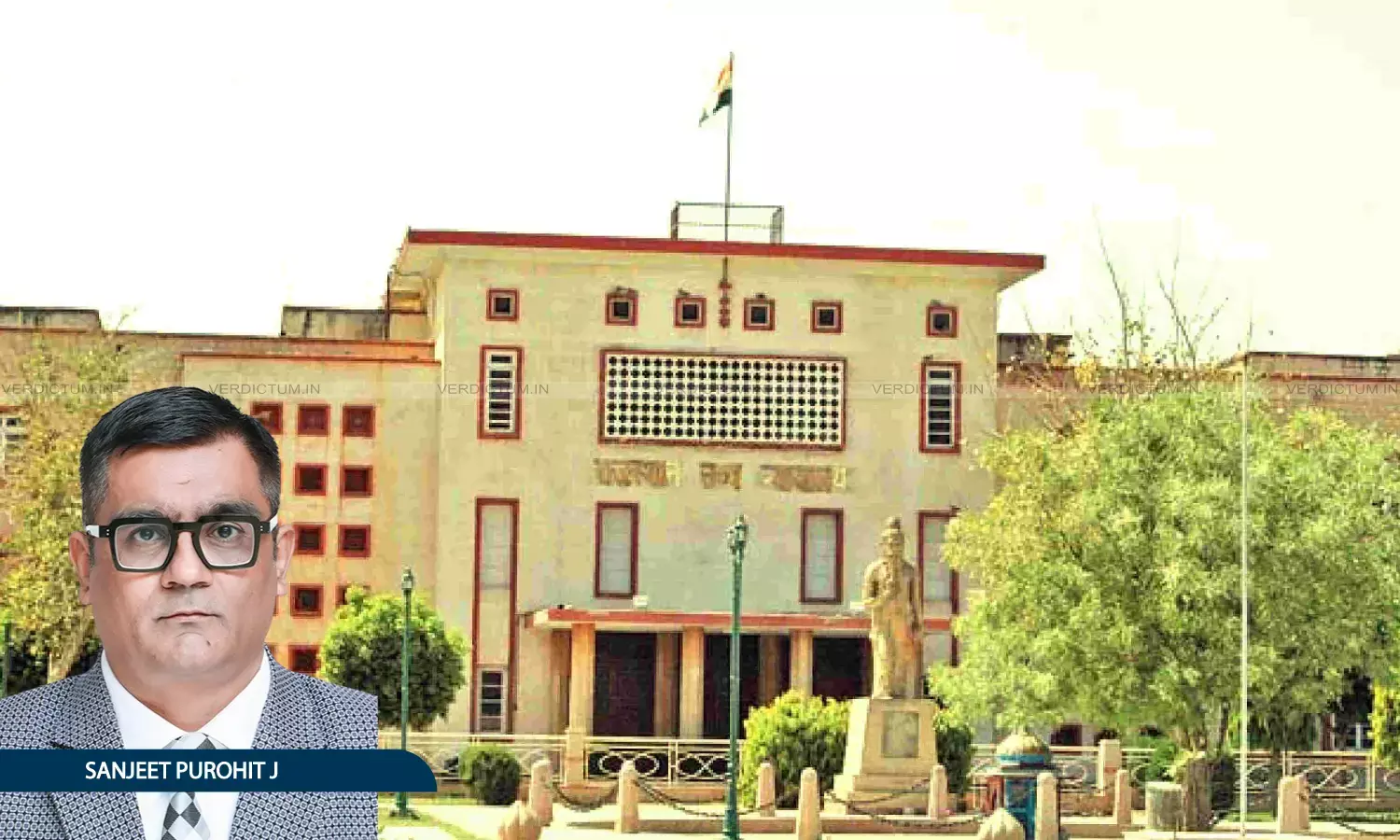Concealment Or Falsehood Disqualifies A Party From Being Heard On The Merits Of The Case: Rajasthan High Court Imposes ₹25K Cost On Litigant
The High Court held that a litigant invoking writ jurisdiction must approach the Court with clean hands, and suppression of material facts warrants outright dismissal, irrespective of merits.

The Rajasthan High Court dismissed a writ petition and imposed a cost of ₹25,000 on each petitioner after finding deliberate concealment, false statements, and misuse of judicial process.
The Court held that a party invoking extraordinary jurisdiction under Article 226 must disclose all material facts truthfully, and those approaching the Court with “unclean hands” are not entitled to relief of any kind.
The Court was hearing a writ petition challenging a Public Notice issued by a Gram Panchayat for auctioning certain shops on rent, and seeking restoration of the shops to the petitioners at the old rent.
A Single Bench of Justice Sanjeet Purohit, while dismissing the petition, observed: “The High Court functions not only as a court of law but also as a court of equity. Therefore, anyone seeking equitable relief under Article 226 of the Constitution is obligated to present all relevant facts before the Court fully and truthfully. The foremost condition for invoking the extraordinary jurisdiction of a Constitutional Court is that the petitioner must approach the Court with clean hands. Concealment or falsehood disqualifies a party not only from seeking equitable relief but also from being heard on the merits of the case.”
Advocates Y.K. Sharma and Arvind Kumar Arora represented the petitioner, while the respondents were represented by Kapil Prakash Mathur (AAG.
Background
The petitioners had been tenants of shops owned by the Gram Panchayat since 2001–2002. In February 2024, the Panchayat issued notices directing them to vacate the shops for repair work, with an assurance that possession would be returned afterwards. The petitioners claimed they vacated the premises voluntarily and that, despite completing repairs, the Panchayat issued a Public Notice on 06.12.2024 proposing to auction the shops instead of restoring them.
Relying on these claims, the High Court granted interim relief staying the auction.
However, during subsequent proceedings, the respondents demonstrated that the petitioners had not vacated the premises voluntarily, and possession had to be taken with police assistance. It was further revealed that the petitioners had already filed a civil suit challenging the eviction notice, which was dismissed. Their appeal was also dismissed on 10.05.2024. These facts were omitted from the writ petition. Petitioners (or their close relatives) participated in the first auction in August 2024, became the highest bidders, but refused to deposit the bid amount, causing the cancellation of the process. They then approached the High Court to stall the second auction.
The Court found that these facts were concealed wilfully to obtain interim relief.
Court’s Observation
The High Court held that the petitioners had deliberately misled the Court by suppressing material facts and making false averments. It noted that the writ petition was built on the false premise that they voluntarily vacated and were entitled to restoration, which was disproven by the record showing eviction through police and an undertaking acknowledging no pending dispute.
The Court emphasised that writ jurisdiction is equitable, and “anyone seeking equitable relief under Article 226 of the Constitution is obligated to present all relevant facts before the Court fully and truthfully.” Suppression and falsehood alone were grounds for dismissal without going into the merits.
Relying on Dalip Singh v. State of U.P. (2010), the Court reiterated that courts cannot assist litigants who attempt to “pollute the stream of justice” and that “a litigant who touches the pure fountain of justice with tainted hands is not entitled to any relief, interim or final.”
The Bench further cited Tomorrowland Ltd. v. HUDCO (2025) and Auroville Foundation v. Natasha Storey (2025) to underline that concealment and misleading statements in writ jurisdiction amount to abuse of process and justify dismissal without hearing merits.
The Court also observed that the petitioners frustrated auction proceedings by participating, winning bids, but intentionally refusing to deposit money, causing financial loss to the Panchayat. Such conduct was held to be mala fide and designed to stall revenue generation.
Conclusion
Accordingly, the Rajasthan High Court dismissed the writ petition and imposed costs of ₹25,000 on each petitioner, to be deposited with the Rajasthan State Legal Services Authority within 15 days.
The petitioners were also directed to file receipts with the Registry. All pending applications were disposed of.
Cause Title: Heera Lal Saini & Anr. v. State of Rajasthan & Ors. (Neutral Citation: 2025:RJ-JP:44159)
Appearances:
Petitioners: Advocates Y.K. Sharma, Arvind Kumar Arora
Respondents: Kapil Prakash Mathur (AAG), Advocates Sumit Purohit, Pranay Sharma, Mahendra Pratap Singh, M.S. Raghav, Vishwas Saini, Kirti Rathore


